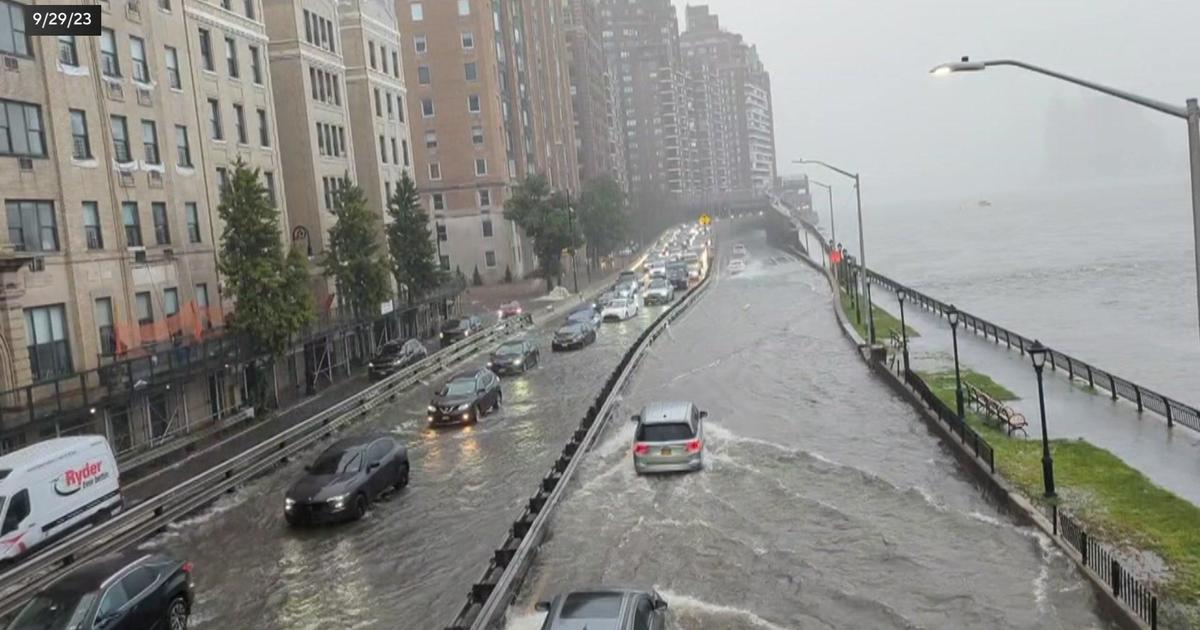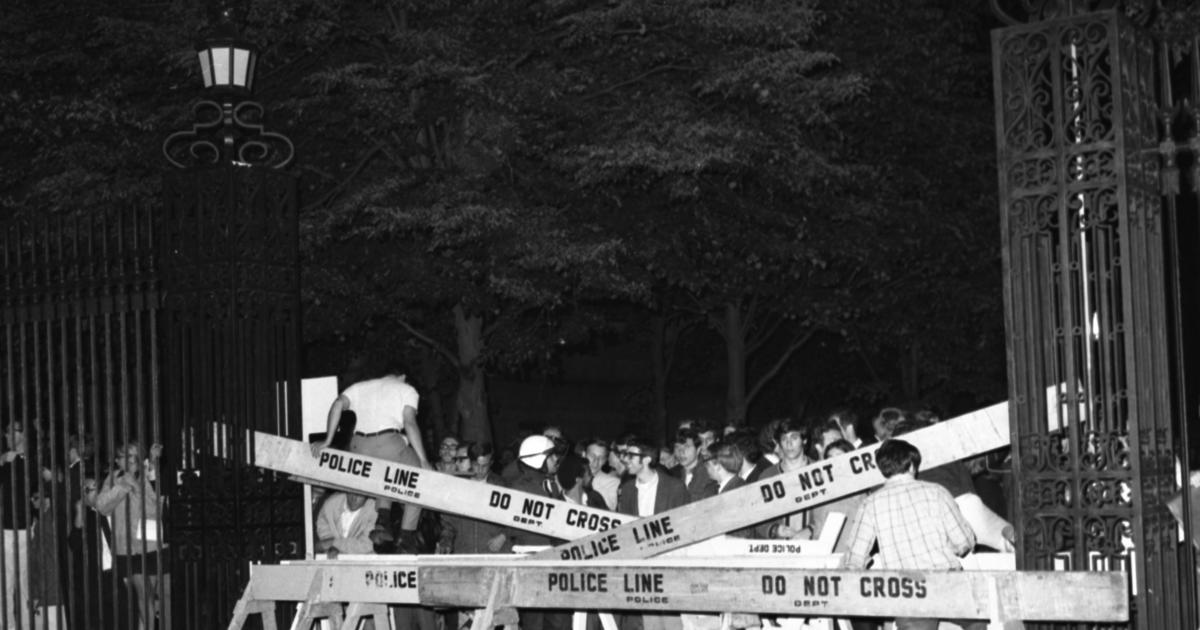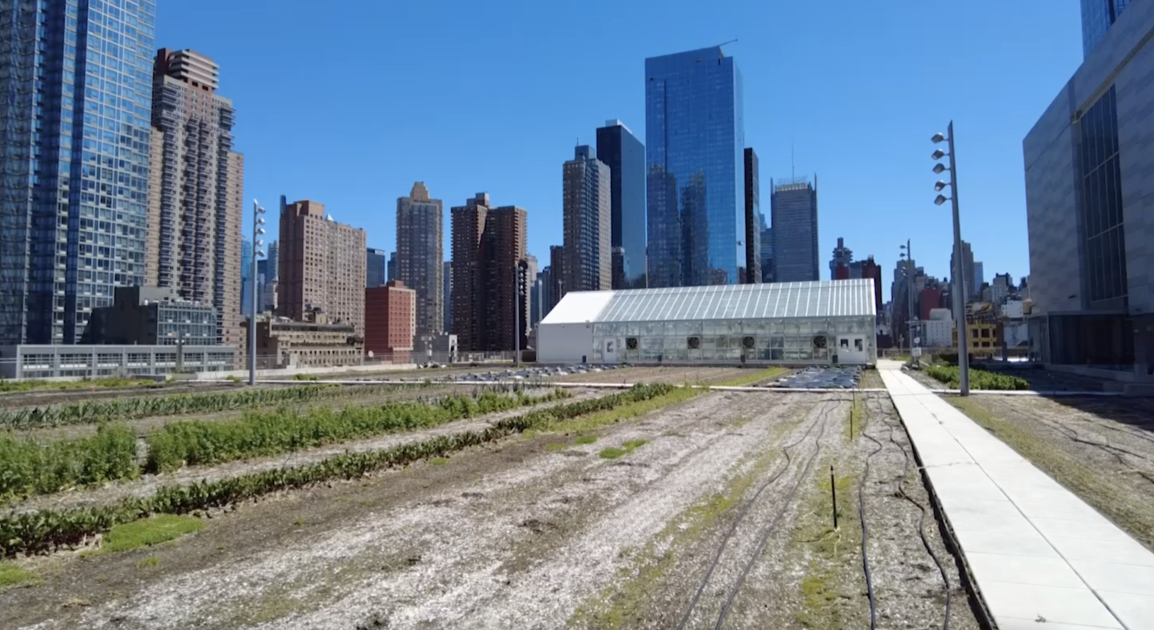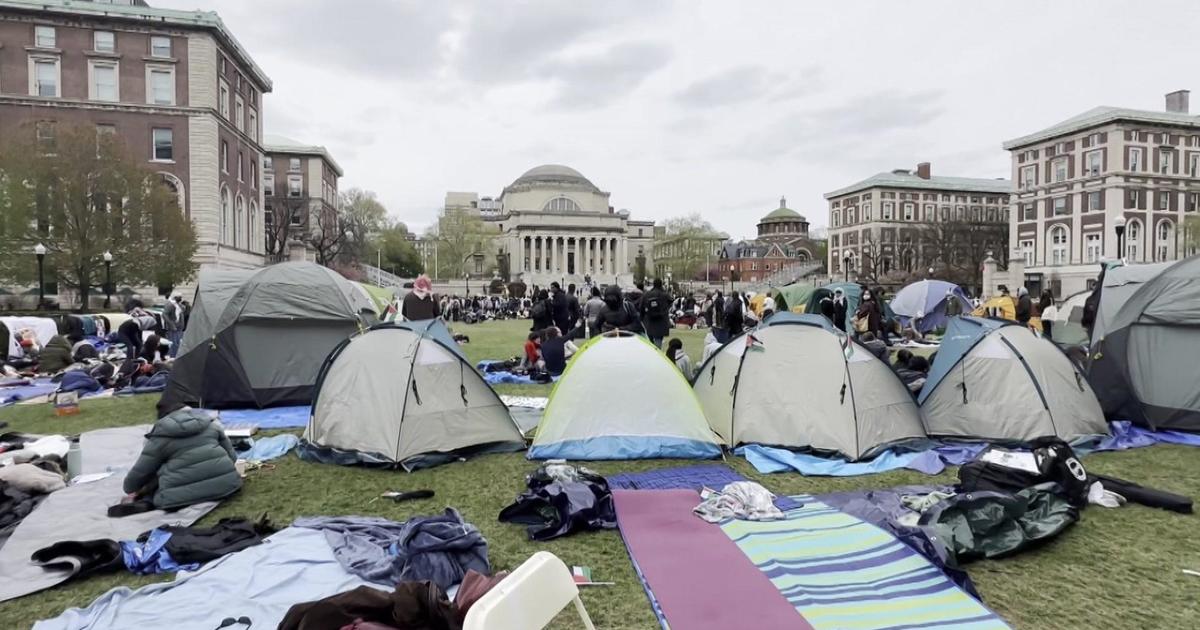De Blasio: More Cops Will Lead To Improved Community Relations
NEW YORK (CBSNewYork/AP) -- The addition of 1,300 officers will help police build stronger relationships in the neighborhoods they serve and make the city safer, Mayor Bill de Blasio said Thursday.
As CBS2 Political Reporter Marcia Kramer reported Thursday, de Blasio and police Commissioner Bill Bratton said a new community policing plan -- "One City Safe and Fair Everywhere" -- will also stop the surge in shootings and murders that have made some people begin calling the Big Apple "Gun City."
The hope is that if the NYPD's reengineering plan works, there will be far few yellow tape-enclosed crime scenes where the latest murder or shooting took place. The new hires, and the transfer of 400 officers from desk jobs to the streets, are believed to be the ticket for change.
"We are taking policing to the next level in the city," de Blasio said.
The plan focuses on the new community policing initiative, where instead of being reactive by responding to 911 calls, a portion of each precinct command will be proactive – reaching out to community residents to solve problems and establish new trust.
Officials hope the new relationship will lead to people tipping off officers to where the bad guys are.
"We are putting our best, our brightest, our most dedicated into this initiative throughout the city, and I am very optimistic," Bratton said.
Right now, there is a pilot program in four high-crime city precincts -- two in Queens' Rockaway peninsula and two in upper Manhattan -- in which precinct-based units focusing on complaints about neighborhood conditions were disbanded, freeing up officers to regularly patrol their sectors, officials said.
Hand-selected, seasoned officers committed to the neighborhoods they police -- dubbed Renaissance cops because they'll be part detective, community affairs officer and intelligence investigator -- will be exempt from chasing 911 calls one third of their time to meet with principals, past victims and others in order to develop rapport and gain community trust.
One of the precincts under the pilot program is the 34th, in Washington Heights and Inwood. Before the change, most officers in the precinct were assigned to specialized units, but now, most are assigned to the community.
"This is a cultural change for the NYPD," said police Chief of Department James O'Neill. "This is actually a sea change."
Officials said the pilot has shown promising results in the 34th Precinct. From May 25 to June 21, crime in the precinct in seven major categories is down 18.9 percent – with 87 incidents down from 107 in the same period last year.
There were no murders at all in the precinct for the period, compared with two last year. And response times are down from 12 minutes and 19 seconds last year to 10 minutes and 38 seconds this year – attributed to additional officers in communities.
De Blasio: More Cops Will Lead To Improved Community Relations
The community policing pilot will be expanded to 15 precincts – in high-crime areas – by the end of 2016.
"It's people at the neighborhood level knowing they can walk up to a police officer; let them know what's going on; share a tip with them; tell them what they need," de Blasio said.
As WCBS 880's Rich Lamb reported, Bratton noted residents will encounter the same officers in their neighborhoods day after day.
"So this is effectively back to the future," Bratton said. "Everything old is new again and the idea of cops in a community who are known to the community, who care about that community."
The approach sharply differs with the stop, question and frisk police tactic that, for years, had been employed by officers, disproportionately affecting black and Hispanic men. In 2011, there were 685,000 stops. Last year there were 46,000 and so far this year there have been more than 7,000 stops, according to NYPD statistics.
"Over the course of the last 10 months I've attended numerous community meetings all throughout the city and we're listening,'' Chief of Department James O'Neill said earlier this week. "And the theme in just about every meeting is that policing is something that's done to us and not with us, and we need to change that."
The program is very similar to other community policing initiatives the NYPD has tried, but as 1010 WINS' Carol D'Auria reported, officials promised this new program will work much better.
De Blasio: More Cops Will Lead To Improved Community Relations
There will also be a new anti-terrorism unit, 358 strong. Its members will be highly trained and given specialized equipment to investigate possible terror plots and hopefully, stop them before they are activated.
The mayor told WCBS 880 on Thursday that the counterterrorism officers will not be plucked from local precincts.
"This means we'll have a stronger standing force, and those precincts will not have officers taken away," de Blasio said. "So every precinct is going to feel the effect of this in the near term."
The new strategy is the latest in a string of initiatives Bratton has announced since taking charge of the nation's largest police force 18 months ago. After the chokehold death of Eric Garner on Staten Island last summer, he vowed to retrain the entire force to teach officers how to de-escalate confrontations.
But subsequent protests over the deaths of black men in police custody and the fatal shooting of two NYPD officers in their patrol cars last December coalesced into a crisis for the NYPD and strained both officer morale and community relations.
As for the recent surge in murders and shootings, de Blasio said he thinks the NYPD's new "Operation Summer All Out," an initiative that adds 330 officers to 10 high-crime precincts, is the ticket for change.
"I think that turnaround is already happening," he said. "If you look at last week, Summer All Out has already had real results in reducing shootings and murders. So I think we're in the midst of a turnaround right now."
The new cops are expected to be in place by the end of June 2016.
The mayor had opposed a larger head count, but he said Commissioner Bill Bratton's analysis of the force showed that community policing and measures to drive down the crime rate can go hand in hand.
(TM and © Copyright 2015 CBS Radio Inc. and its relevant subsidiaries. CBS RADIO and EYE Logo TM and Copyright 2015 CBS Broadcasting Inc. Used under license. All Rights Reserved. This material may not be published, broadcast, rewritten, or redistributed. The Associated Press contributed to this report.)



